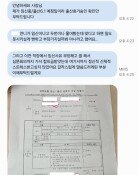The evolution of English
Just as Korea has "Konglish," France has "Frenglish" and Germany "Denglish." In Germany, a mobile phone is called a "handy" under German-style English. This term is not used in any English-speaking country. Britons say "mobile phone" and Americans say "cellular phone." In France, an electric railway is called "tramway," but English-speaking countries simply use the term "tram."
Japan is an expert in creating English-style expressions that do not exist in English. Many Konglish words used in Korea were borrowed from "Japlish" in Japan. "Salary man," which usually refers to a white-collar worker who earns a salary, is a Japlish word used since the 1930s. If expressed in English, the word should be salaried man. In English-speaking countries, they hardly use such an expression and instead use white-collar worker. Spec as an abbreviated form of specifications is also Japlish. Spec, which refers to a job applicant`s qualifications rather than a product`s specifications, is a Korean mutation of the word, however.
The BBC recently cited skinship as an example when it introduced Konglish as part of the evolution of English. Skinship was first used in Japan, with a description in a Japanese encyclopedia suggesting that an American scholar used the term to indicate communication between a mother and a baby in a World Health Organization meeting in 1953. The term is known to have spread to Japan to be used there. In the English-speaking world, "touchship" is mostly used, and Wikipedia, the free online encyclopedia, categorizes skinship as Japlish. In Korea, this term is more frequently used in relations between lovers rather than between a woman and her child.
The BBC said English is fast evolving, and as Web users in non-English speaking countries putting up posts on English webpages en masse, English dialects used in their linguistic areas are rapidly spreading. The British network cited Konglish and "Hinglish (Hindi and English)" from the Indian region as examples. In Hinglish, the term "co-brother" is used to refer to a brother-in-law, or a relative formed through marriage. It is welcome news that the BBC considers such a trend as evolution rather than deterioration of the English language, saying such new English styles make the language more prosperous and rich. This is a bit regrettable, however, because Konglish has been following the lead of Japlish.
Editorial Writer Song Pyeong-in (pisong@donga.com)
Headline News
- N. Korea launches cyberattacks on S. Korea's defense companies
- Major university hospital professors consider a day off each week
- Italy suffers from fiscal deficits from ‘Super Bonus’ scheme
- Inter Milan secures 20th Serie A title, surpassing AC Milan
- Ruling and opposition prioritize spending amid tax revenue shortfalls







